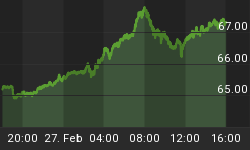Something amazing has happened in the energy market. The cost of solar power has fallen to the point where, in a growing number of places, it's cheaper than the electricity that utilities deliver from their coal-fired power plants. And its price is still falling.
The implications are huge. Most of the world's governments, for instance, have concluded that the burning of fossil fuels is destabilizing the climate and are considering fairly extreme measures to slow down the process. But what if all that's necessary is getting out of the way of solar? Here's the Daily Bell's take:
Market is Solving Climate Change
Don't hold your breath, but future historians may look back on 2015 as the year that the renewable energy ascendancy began, the moment when the world started to move decisively away from its reliance on fossil fuels. Those fuels - oil, natural gas, and coal - will, of course, continue to dominate the energy landscape for years to come, adding billions of tons of heat-trapping carbon to the atmosphere. For the first time, however, it appears that a shift to renewable energy sources is gaining momentum. If sustained, it will have momentous implications for the world economy - as profound as the shift from wood to coal or coal to oil in previous centuries. - Grist.org, April 16, 2015
Politicians like Al Gore have made millions whipping crowds into a frenzy over "Climate Change," the newer term for what they once called "Global Warming."
Whether or not one believes the world is in peril, fossil fuels are certainly not pleasant. No one enjoys breathing exhaust fumes or having frackers move in across the street. We accept the disadvantages because the fossil fuel cost-benefit calculation outweighs the alternatives.
This is beginning to change, and the way it is changing is a classic illustration of markets beating government to the best answer.
In short, supply and demand sets prices, and prices drive behavior. No one willingly spends more than necessary to buy energy or anything else. Crude oil prices near $100 drove development of cheaper alternatives. Climate change concerns no doubt helped, but price was the main factor.
Potential profits are always an excellent incentive. They worked this time, too. The cost of solar photovoltaic cells has fallen 75% since 2009. In sunny tropical regions, solar-generated electricity is now competitive with coal, oil and gas. It is cleaner, less expensive, more reliable and does not require extensive infrastructure.
Even Dubai, which you might think would favor the oil sheiks who built it, is building a $330 million solar electricity plant that will generate 200 megawatts of clean energy. The builders promise to deliver electricity for a cost about one-third less than a natural gas plant of the same capacity.
When an industry can undercut the competition's price by 30% or more, the competition does not have a chance. The established players will survive only as long as they can use political influence to protect their turf. Electric utilities in Hawaii and Arizona, among other places, are desperately throwing up hurdles for homeowners with rooftop solar cells.
These utilities will lose. Technology is rendering their state-protected monopolies worthless. They can either evolve or die.
This is how it will go from here: As solar's price keeps falling due to economies of scale, the spread of best practices in rooftop installation, and (probably) breakthroughs in the design and/or composition of solar panels, it will put a ceiling on the price of electricity. Coal, natural gas and oil will only be bought if the they're cheaper than solar -- which is getting less expensive every year.
Meanwhile, battery technology (see Everything you need to know about Tesla's new household batteries) will make it attractive for homeowners to put solar panels up top, batteries in the basement and electric cars in the garage, virtually going off grid in the process. As solar gets cheaper, more families will make this choice and the virtuous cycle of rising demand generating economies of scale generating lower prices generating rising demand will kick into high gear.
Plenty of established industries have been pushed off the field by better technologies in recent years. Cathode-Ray TVs were made extinct by flat panels; bookstores and video stores were largely replaced by online retailers; record labels and cable companies are headed the same way as this is written. But energy is a whole different animal, dwarfing most other industries in scope and impact. So this revolution will be unlike anything that's come before.















